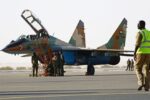Egypt’s intervention in Sudan’s war
27 December 2024
Egypt’s interventions in Sudan’s ongoing 20-month long conflict may go beyond providing air support, as previously reported, analysts told Ayin. While denied by Egyptian officials, sources say Sudan’s northern neighbour is also providing military intelligence and arms to both Sudan’s army and allied forces, the Sudan Liberation Army under Minni Minnawi.
Since the onset of the conflict in Sudan in mid-April last year, both warring factions have repeatedly accused each other of receiving foreign support, including weapons and mercenaries. The Sudanese Armed Forces (SAF) and their allies have alleged that the paramilitary Rapid Support Forces (RSF) are backed by nations such as the United Arab Emirates (UAE), Chad, the Central African Republic, and other regional powers. Meanwhile, RSF commander Mohamed Hamdan Daglo, in a recent speech, accused Egypt and five unnamed countries of supplying the SAF with weapons and mercenaries.
Over the past 20 months of conflict, investigations have revealed links between Sudan’s warring factions and various international and regional actors, including Russia, China, Iran, the UAE, Qatar, Egypt, Saudi Arabia, Chad, the Central African Republic, and Kenya, among others.
The international entanglements have offered little solace to the Sudanese population, who face a dire humanitarian crisis. An estimated 26 million people are in need of urgent aid, while over 11 million have been displaced by the conflict.
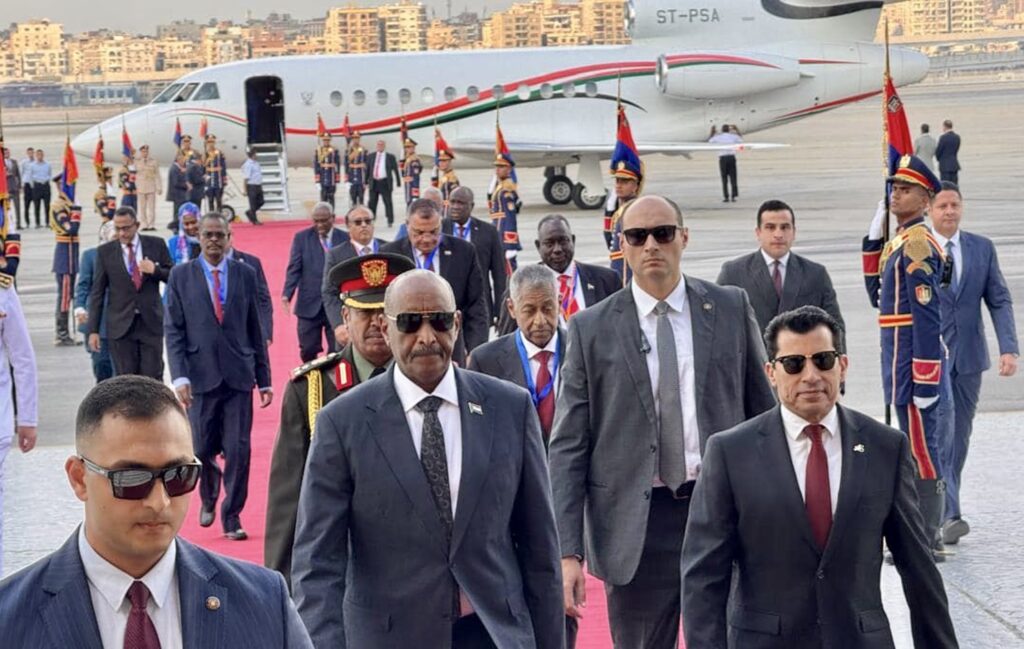
Egypt’s political intervention
Egypt has been at the forefront of supporting Sudan’s army at the very onset of Sudan’s conflict. When the war started in mid-April last year, 250 Egyptian soldiers were stranded at Marwai Airbase in Sudan, where they had been a part of a joint training mission under a military agreement signed after Sudan’s 2019 revolution.
According to a Middle East expert who requested anonymity for security concerns, Egyptian officials are even dictating military strategy and directives. In their discussion with SAF commanders, the expert said Egyptian officials insisted that SAF must regain control of the capital, Khartoum, and avoid settling in Port Sudan, which Egypt believed would undermine the legitimacy of SAF in governing the country.
Kholood Khair, Director of the Sudanese thinktank, Confluence Advisory, says Egypt has supported Sudan’s army since the beginning and even influences military decisions. “SAF losing Khartoum was a redline for Cairo, and their efforts today see mostly in service of SAF controlling Khartoum and Al-Jazeera State,” Khair said.
The Middle East expert also confirms to Ayin that Egypt has also been a strong opponent of any attempts to divide Sudan, positioning itself as a key advocate for the country’s unity.
Al Basha Tabig, advisor to the Rapid Support Forces (RSF), provided Ayin with an outline of Egypt’s extensive political support for the Sudanese army. “Egypt has essentially adopted the army’s perspective in many instances,” he said, highlighting diplomatic backing in regional and international forums.
Tabig criticises Egypt for hosting figures from Sudan’s former regime, including Salah Gosh, Awad Ibn Auf, Kamal Abdel-Marouf, Mohamed Tahir Ayala, and Kamal Hassan Ali, adding, “The evidence we have, including Egypt’s hosting of these figures, is just a fraction of the proof we possess.”
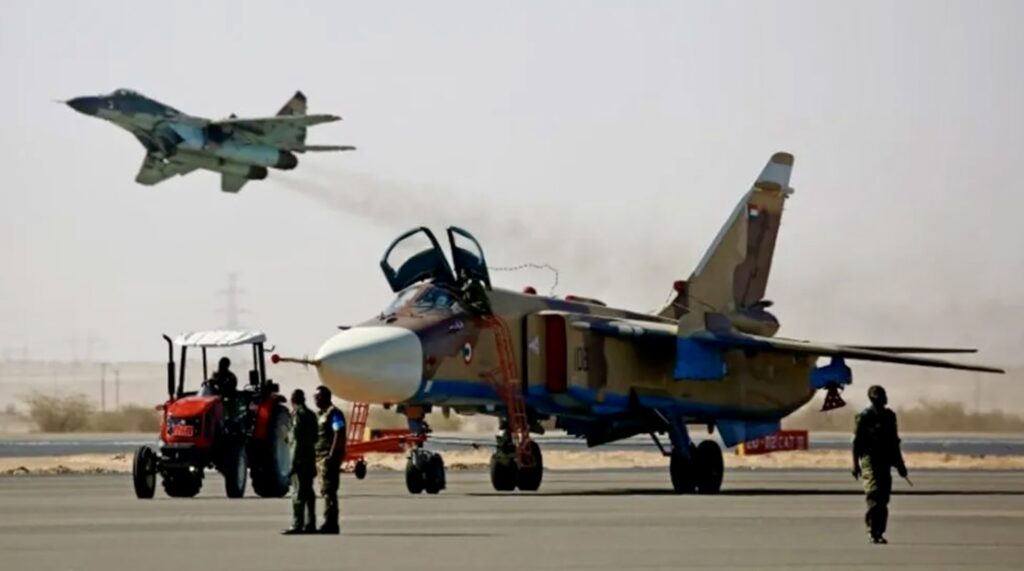
Egyptian arms
According to the expert, Egypt has sent military intelligence experts to Port Sudan to coordinate and support SAF operations. The source revealed that Egypt and SAF opened a supply corridor through Halfa, which allowed Egypt to provide arms and support to SAF. Egypt’s aerial support has been critical for the army. The Egyptian Air Force helped SAF reclaim strategic locations in Khartoum, including the three main bridges, and targeted Shambat Bridge to disrupt RSF supply lines, the source said.
“Egypt is fighting us,” declared RSF Commander Mohamed Hamdan Daglo in a recent speech, delivered shortly after his forces lost the strategic location of Jabal Moya in Sennar State. Daglo accused Egypt of carrying out heavy airstrikes on his troops, which he claimed forced their withdrawal. He also accused Egypt of providing Chinese K-8 fighter jets and training SAF. The Egyptian foreign ministry swiftly denied the allegations in a public statement, calling on the international community to scrutinise the RSF commander’s claims.
Tabiq told Ayin that Egypt has provided K-8 aircraft, ammunition from Antonov planes, and other equipment’s, describing it as “direct military aid.”
According to the Middle East expert, Egypt purchased weapons from Serbia to supply the army-allied armed group, the Sudan Liberation Movement, led by Mini Arko Minnawi, the governor of Darfur. The weapons, according to the source, were overseen by Abas Kamil, the former head of Egypt’s general intelligence, and were delivered to the Chadian capital before reaching the movement in Darfur, Sudan. This occurred on the same day Kamil was reported to have been in Chad for a meeting with President Deby. Publicly, it was reported that Kamil was delivering a written message from Egyptian president Abdel Fattah el-Sisi.
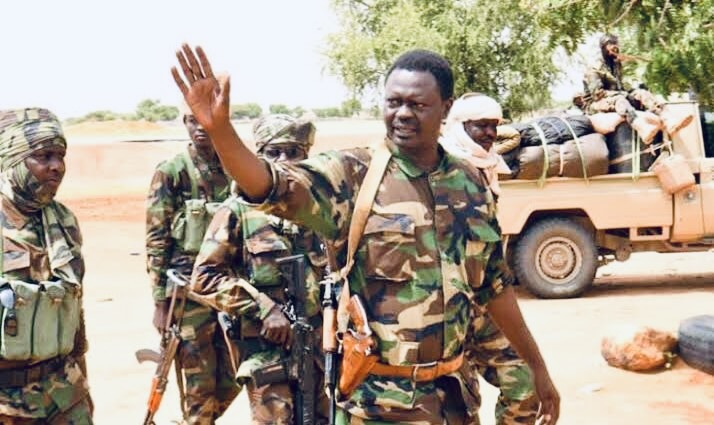
Following these developments, the expert noted that President Deby was summoned to the UAE, leading to the firing of the Chadian Defence Minister.
The Wall Street Journal has reported that Egypt supplied the Sudanese Armed Forces (SAF) with Turkish-made Bayraktar TB2 drones in November to bloster their fight against the Rapid Support Forces (RSF). Security officials revealed that SAF personnel received drone training in Egypt.
The Egyptian foreign ministry, the Chadian foreign ministry, and the Sudan Liberation Movement under Minni Minnawi did not respond to Ayin’s request for comments by the time of publication.
The SAF spokesperson rejects these claims and underscores their self-reliance and national sovereignty. “These allegations are utterly absurd,” the SAF spokesperson Nabil Abdallah told Ayin. “The armed forces are conducting their operations using the country’s self-reliant capabilities, unlike the militia and its allies, who are mere tools for advancing the UAE’s malicious agenda. This will not succeed in Sudan, thanks to the will of its people and the steadfastness of its armed forces.”.
When asked about potential external collaboration, the spokesperson emphasised SAF’s right to determine its partnership as a sovereign entity. “SAF is not in need of external consultations or assistance. However, as the military of a sovereign state, it reserves the legitimate right to collaborate with any country globally, should it choose to do so.”
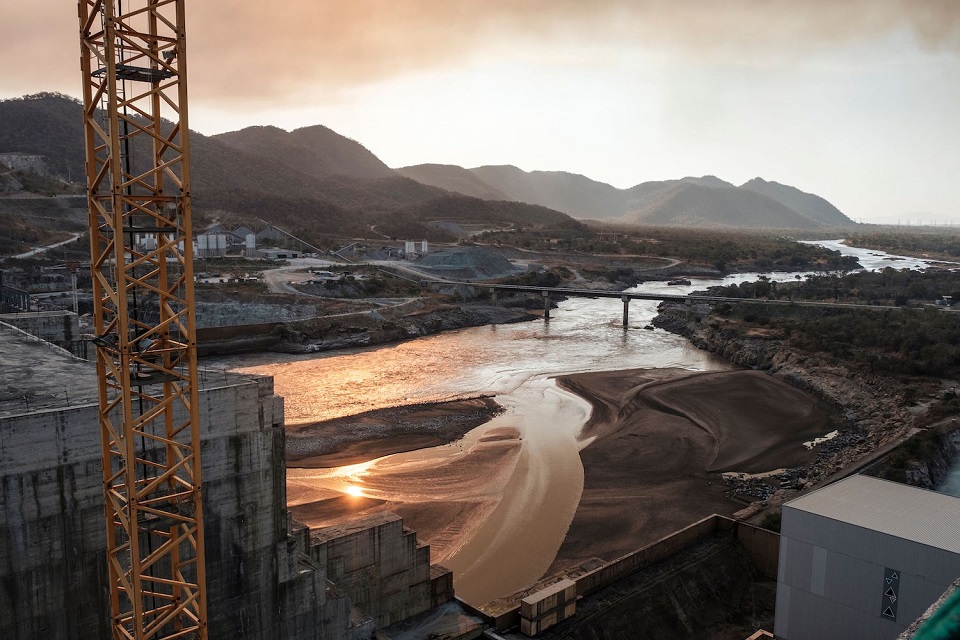
Historical ties
The Sudanese Armed Forces (SAF) share deep historical ties with Egypt, stemming from centuries of intertwined political and military relations. Historically, the SAF and the Egyptian Armed Forces have common training programs, strategic cooperation, and a mutual influence on political leadership, as military figures from both sides frequently transitioned in ruling their countries. This enduring connection highlights the central role of military institutions in shaping the political landscapes of Sudan and Egypt.
Retired Lt.-Col. Omar Arbab told Ayin, “The relationship between the Egyptian and Sudanese armies is old, rooted in both colonial and post-colonial periods. In the Nimeiri regime in Sudan, there was mutual delegation between the armies, and a military rule was the best reason for relations.” He added, “Egypt remains the closest ally to the current Port Sudan government, and the issue of civilian transition in Sudan threatens both the Sudanese and Egyptian military institutions.”
Kholood Khair pointed out that Cairo’s strategy in Sudan revolves around ensuring a friendly regime in Khartoum that safeguards Egypt’s access to the Nile’s water, particularly in light of recent agreements unfavourable to Cairo. “While the SAF have traditionally aligned with Egypt’s stance, the RSF, bolstered by UAE support, may pursue policies more aligned with Ethiopia’s ambitions for the Nile, posing a significant challenge to Egyptian interests.”
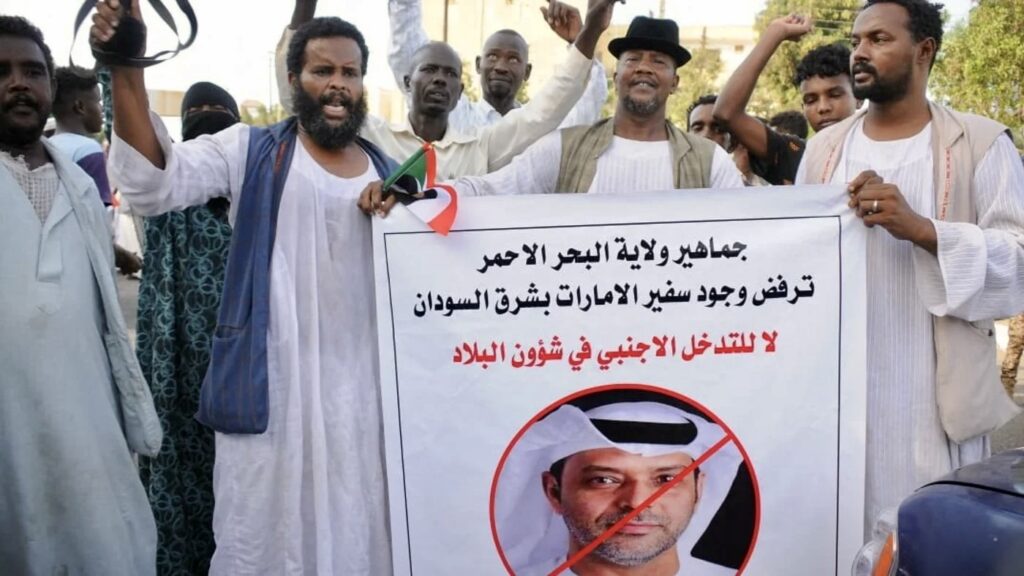
SAF, RSF and the UAE
According to the Middle East expert, Qatar, Egypt, Turkey, Saudi Arabia, and Iran are working on isolating the RSF and their alleged main foreign backer, the United Arab Emirates (UAE). But the RSF are not the only beneficiaries of the UAE’s largesse. The same source also confirmed that the Sudanese Armed Forces (SAF), Bank of Khartoum, and Islamists, including figures like Ali Karti, still maintain financial ties with the UAE. “The Dubai vision isn’t always aligned with Abu Dhabi’s political agenda, as Dubai leans more on investments and goods,” the source said.
According to an 18 December letter to U.S. senate Chris Van Hollen from the deputy assistant to the president and White House coordinator for the Middle East and North Africa, Bret McGurk, the UAE is no longer transferring weapons to the RSF “and will not do so going forward.” In response to the letter, congresswoman Sara Jacobs, member of the foreign affairs and armed services committees, posted on her X account that if the UAE fails to live up to its commitment, “Sen Van Hollen and I won’t hesitate to bring up our bill to block this arms sale to the UAE again.”
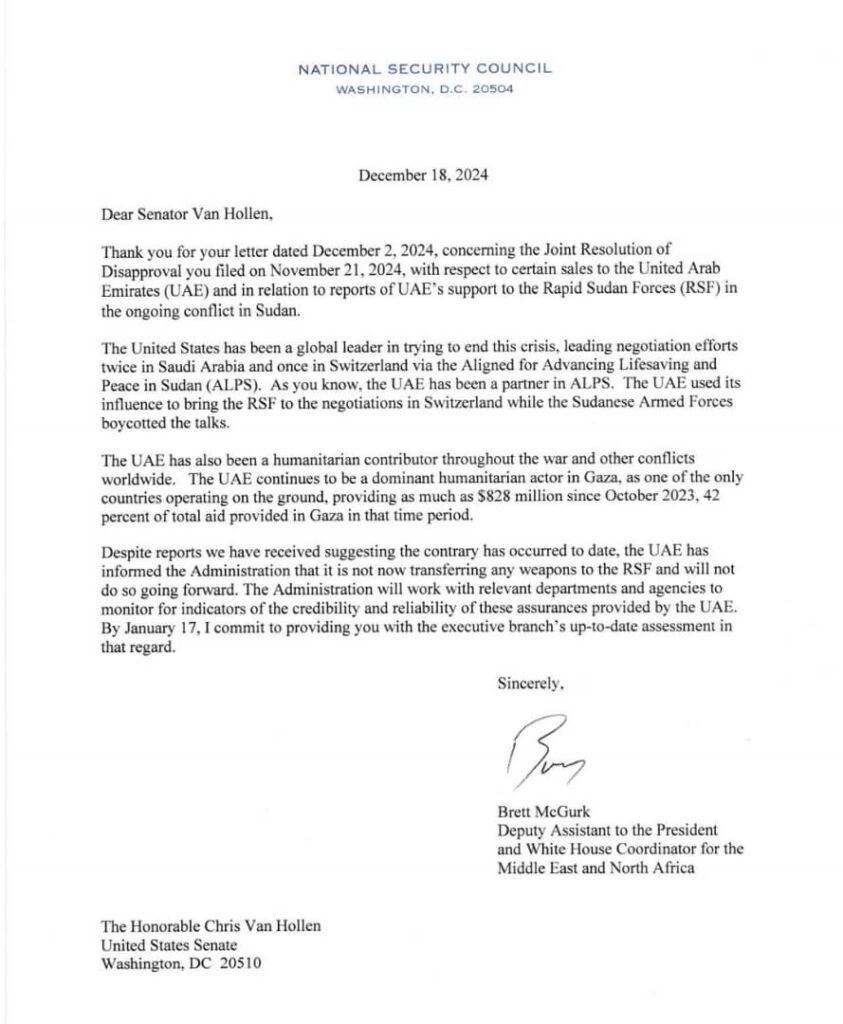
Tabig strongly denied receiving external support, claiming they rely on captured resources from Sudanese army camps. “We depend entirely on spoils of war—seizing weapons, ammunition, and vehicles from army camps, military divisions, and strategic stockpiles. Every time we liberate a military zone or crush army troops, including Al-Bara brigades and other allied armed forces, we seize more weapons and new combat vehicles,” he stated.
He further dismissed the allegation of UAE support, saying “these accusations are distractions to cover the support the army receives from Iran, Egypt, and other countries, as well as the international Muslim Brotherhood organisation.”
Ayin communicated with the UAE foreign ministry for comment, but no response was received by the time of publication.

Foreign influence and Sudan’s fragile sovereignty
The alleged foreign support for both sides highlights a troubling double standard: neither faction appears to reject external backing when it benefits their cause. However, if a country chooses to support the opposing side, both factions quickly raise the alarm about foreign intervention, using it as a weapon to undermine each other.
Both warring sides in Sudan have received external support in various forms, raising concerns about how this assistance is being used and the implications for the country’s future. According to Sudanese political commentator and analyst Dallia Abdelmoniem, the involvement of foreign actors has further complicated the conflict and questions their motivations. “The question is, what do these outside actors benefit from their roles in the current war, what do they stand to gain, and how detrimental is that to the future of Sudan?” she said.
Abdelmoniem highlighted examples such as the United Arab Emirates (UAE), whose actions, she argued, serve its own interests, and Russia, which allegedly supports both sides to secure benefits regardless of the outcome.
“How can they be facilitators when their hands are full of Sudanese blood? They should first negotiate with each other to stop interfering in Sudan’s internal affairs.”
— Fathi Al-Fadol, Central Committee Member, Communist Party
Fathi Al-Fadol, a member of the central committee of the Sudanese communist party, has described the ongoing conflict in Sudan as a proxy war fuelled by foreign interference. He argued that while the war began as an internal power struggle between two factions of the same regime, it quickly escalated into a broader conflict driven by external interests. “The first execution of the war was not by chance—it was planned and carried out with the understanding and support of foreign powers.” Al-Fadol said, pointing to countries like Russia, Turkey, Iran, and the UAE as key players pursuing their own interests.
Al-Fadol highlighted the irony of nations involved in the conflict acting as mediators, referring to Egypt and the UAE. “How can they be facilitators when their hands are full of Sudanese blood? They should first negotiate with each other to stop interfering in Sudan’s internal affairs.” He stated that if external powers ceased their involvement, the war would likely end long ago.
Al-Fadol emphasised the role of internal factors, including the Muslim Brotherhood, which has aligned itself with the SAF as a means of survival: “For the Muslim Brotherhood, this war is existential. They’ve mobilised militias to back SAF, complicating internal dynamics ever further,” he concluded.



